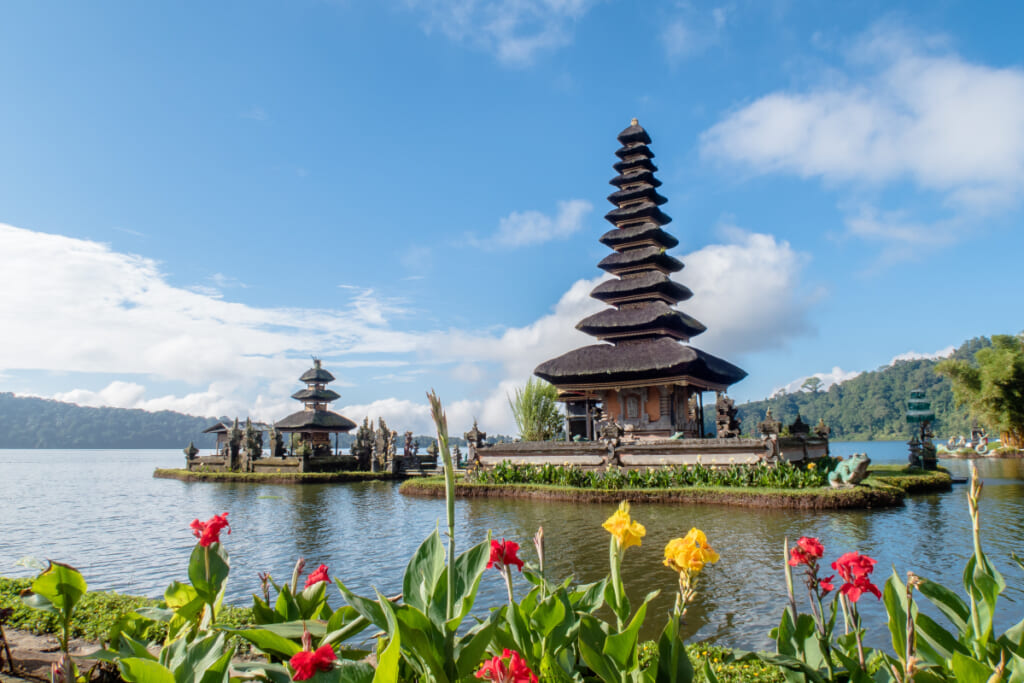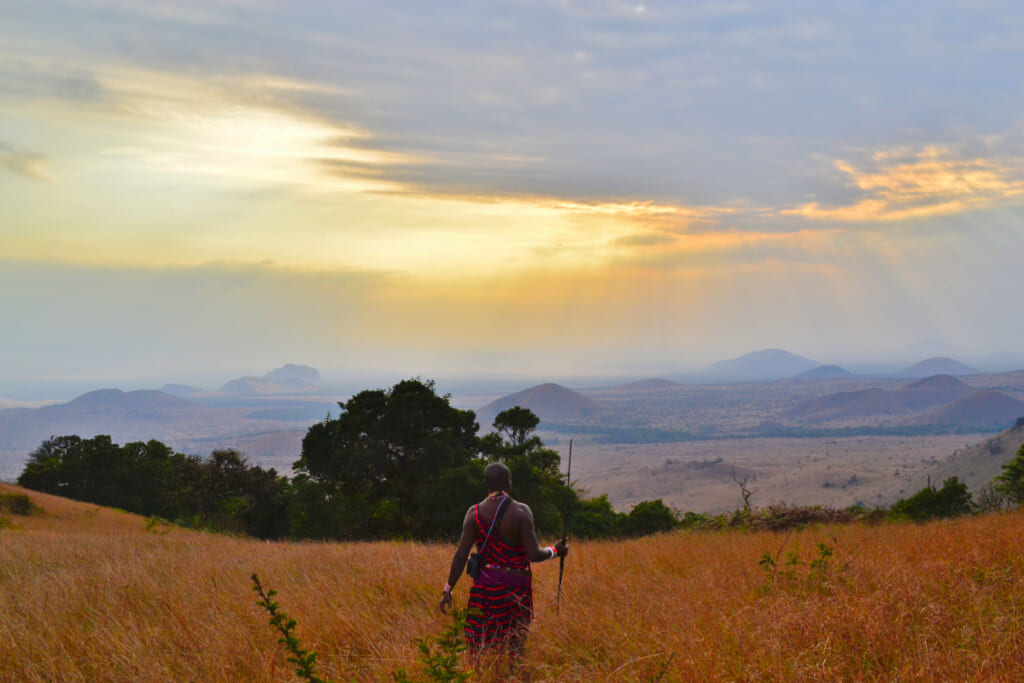
There’s no doubt that Black people love to travel. Whether it’s for a girlfriend or guys getaway, marking a milestone birthday or anniversary, or an annual family vacation, we love to escape to some far off land to explore and chill.
A 2018 study conducted by Mandala Research confirms that Black travelers added a whopping $63 billion to the travel industry last year alone.
According to current research, gone are the days where people felt the need to assemble a “squad” to partake in an international adventure, with over 60 percent of Americans – particularly women – now opting to travel alone.
As we delve into the thick of summer, many of us are either planning or about to embark on our latest excursion across the globe. But, before you take the leap forward, theGrio tapped a group of seasoned Black travel bloggers for their expert tips on how to have the safest, most rewarding, solo dolo travel experiences to date.
Solo travel is still a good idea
With all the disturbing reports about tourist fatalities in the Dominican Republic that popped up at the onset of 2019, we can see why some people would be tempted to tuck away their passports and give up leaving the country altogether. However, most seasoned travelers believe that’s the last resort, especially if you’re bold enough to use this as an opportunity to sneak in some much needed alone time.

“It’s so hard to organize a group of people to travel,” admits Peter Brooks who founded the travel blog, Escape Your Norm. “I like the freedom and flexibility of being able to up and leave when it works best for me. I love being able to explore on my own for the first time, at my own pace and without any distractions.”
“Traveling solo is one of the best things you can do for yourself,” says Oneika Raymond, better known to her loyal social media followers as Oneika the Traveller.
READ MORE: Seasons Change: 5 Amazing outdoor travel adventures to celebrate spring
“Traveling solo is really like administering self-care. You also learn so much about yourself when you travel on your own. It’s also important to remember that you often meet so many more people when you travel by yourself because you’re more open to connecting with others than if you were on the road with your designated travel squad…. traveling solo doesn’t necessarily mean you’ll be alone.”
First and foremost, do your research!
Once you’ve decided to treat yourself to a solo vacay, exactly how do you determine if a location is safe enough to enjoy, especially for women and people of color?
According to travel and lifestyle influencer Ashleigh Reddy from travel blog Stay Reddy, the first step is to do extensive research online.
READ MORE: Hitting the Tracks in Style: Travel’s Most Luxurious Train Rides
“I check travel groups online,” she says, noting that it’s wise to not just lurk, but also engage in those groups with specific questions and concerns. “Chat with folks who have been there and check for travel warnings.”
Reddy also warns that even when you think you’ve found the perfect destination, it’s better to, “Have a working phone (I get local SIM cards), tell friends and fam of your whereabouts, keep backups of your information on you as well as in your luggage, and listen to your intuition!”
“Try not to walk around flaunting your valuables,” adds Brooks. “If it’s necessary to walk around with an expensive item, keep it close to you and be observant around the people in your vicinity.”
He also recommends not telling strangers where you’re staying, avoiding hopping in any unmarked/non-reputable taxis, and if you’re feeling extra cautious, bring your own portable security cameras to set up in your Airbnb or hotel rooms.
“I use the Google Nest security camera, which has motion detection, facial recognition and will alert your phone,” he concluded.
Find your safe space
For those less experienced travelers looking for a cheat sheet of locations to hit up, we asked our panel to share some of their favorite safe spaces to travel alone.
“Firstly, it’s important to note that feelings of ‘safety’ are relative,” points out Raymond. “Every destination has its pitfalls and things to watch out for; also, naturally, if you’re an inexperienced traveller you’ll tend to feel less secure when you travel because you haven’t yet built up your confidence.”

Among her safe travel picks she listed, “Hong Kong because the crime rate there is very low, people are respectful, and the city is very easy to navigate if you speak/read English as bilingual signage is everywhere. I actually lived in Hong Kong for five years and never once felt unsafe, even when walking home alone at night.”
Both Brooks and Reddy recommend Bali, Indonesia.
“Bali is hella chill and laid back,” explains Brooks. “There isn’t a lot to worry about out there. Bali is very tourist-friendly, though you might hear warnings about petty crime, which is pretty normal in most places.”
“The locals are highly spiritual and peaceful,” says Reddy. “The other travelers there are mostly looking to relax and/or recharge.”
Other travel safe havens include Cuba because everything is pretty much regulated by the government.
“People don’t really have weapons and I didn’t hear of any thefts happening,” says Reddy.
Then there’s the Amalfi coast off the southern edge of Italy, which is applauded for being a remote destination with friendly locals. Kyoto, Japan and Llubljana, Slovenia were also called out for feeling incredibly safe.
If you’re looking for a destination that’s more closely tied to African culture, try Kigali, Rwanda, or even consider traveling through Zambia.
“The African continent is stereotyped as a ‘dark and dangerous’ destination for travelers,” admits Raymond. “But, I was struck by the beauty and kindness of the people, who were extremely helpful. The expansive tourism infrastructure also makes it easy to get around and see some of the country’s most gorgeous sights like Victoria Falls. Zambia also ranks high on the Global Peace Index and has a best-possible level 1 advisory from the U.S. Department of State.”

The Global Peace Index (also known as GPI) ranks 99.7 percent of the world’s population and is meant to measure the relative position of each nations’ and regions’ peacefulness. It can be a useful metric for travelers to consider.
As for places you should probably avoid altogether, our travel experts listed Iran, Sudan, Syria or any other countries that is currently war torn or experiencing violent political unrest.
“The things you will learn from traveling you will never acquire by staying stationary,” Brooks advises to those still on the fence. “The people, cultures and ways of life will give you a greater perspective of your own life and that of others around you.”
Source link
 Black America Breaking News for the African American Community
Black America Breaking News for the African American Community